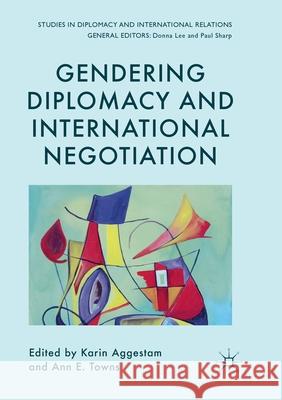Gendering Diplomacy and International Negotiation » książka
topmenu
Gendering Diplomacy and International Negotiation
ISBN-13: 9783319864549 / Angielski / Miękka / 2018 / 301 str.
Kategorie BISAC:
Wydawca:
Palgrave MacMillan
Seria wydawnicza:
Język:
Angielski
ISBN-13:
9783319864549
Rok wydania:
2018
Wydanie:
Softcover Repri
Ilość stron:
301
Waga:
0.37 kg
Wymiary:
21.01 x 14.81 x 1.68
Oprawa:
Miękka
Wolumenów:
01
Dodatkowe informacje:
Wydanie ilustrowane











